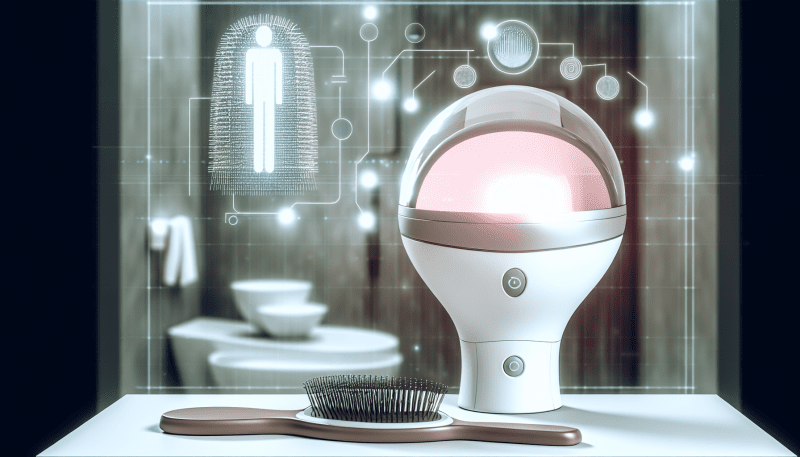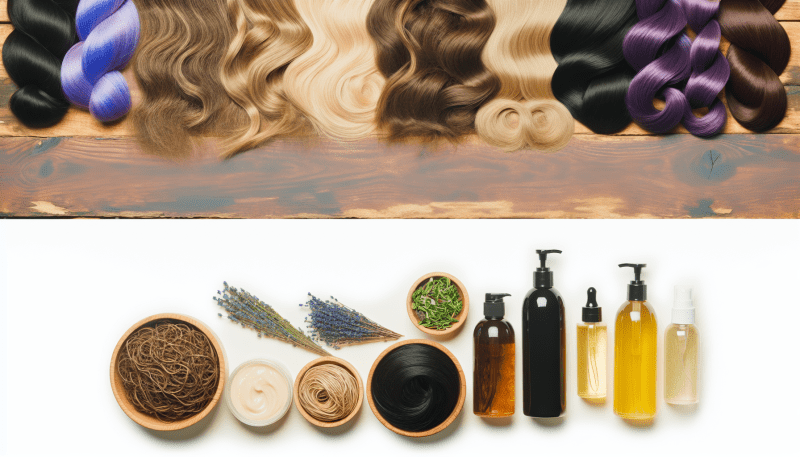For many people, hair loss can be a frustrating and distressing experience. While it may seem like a losing battle, rest assured that there are ways to combat this common issue. The first step towards finding a solution is to understand the causes of hair loss. By identifying the root cause, you can take targeted steps to prevent further hair fall and even promote regrowth.
One of the most common causes of hair loss is genetics. If your parents or other close relatives experienced hair loss, there's a chance you may inherit the same condition. This type of hair loss, known as male or female pattern baldness, typically occurs gradually over time and follows a predictable pattern. Understanding your family history can help determine whether genetics play a role in your own hair loss.
Another cause to consider is hormonal changes. Both men and women experience hormonal fluctuations throughout their lives, which can contribute to hair loss. For men, an excess of dihydrotestosterone (DHT), a hormone derived from testosterone, can lead to the shrinking of hair follicles. In women, hormonal imbalances such as those related to pregnancy, menopause, or polycystic ovary syndrome (PCOS) can result in hair thinning or loss.
Lastly, certain medical conditions and medications can contribute to hair loss. Conditions such as thyroid disorders, scalp infections, and autoimmune diseases like alopecia areata can all affect hair health. Additionally, medications used to treat conditions like cancer, arthritis, depression, and high blood pressure may have the side effect of causing hair loss. It's essential to consult with a healthcare professional if you suspect that a medical condition or a medication may be contributing to your hair loss.
Implement Effective Hair Care: Key Steps for Success
Experiencing hair loss can be a frustrating and disheartening struggle. However, with the right hair care routine, you can significantly improve the health and growth of your hair. Here are some essential tips to help you win the battle against hair loss:
1. Keep Your Scalp Clean
A clean scalp is the foundation for healthy hair growth. Regularly shampoo your scalp to remove excess oil, dirt, and product buildup. Use a mild, sulfate-free shampoo and gently massage it into your scalp with your fingertips, ensuring proper blood circulation and nourishment to your hair follicles.
2. Condition and Moisturize
Conditioning your hair after shampooing is crucial for keeping it hydrated and preventing breakage. Choose a conditioner that suits your hair type and apply it from mid-length to the tips, avoiding the scalp. Leave it on for a few minutes before rinsing thoroughly with lukewarm water.
3. Avoid Heat Styling and Chemical Treatments
Excessive heat from hair dryers, curling irons, and straighteners can damage your hair and contribute to hair loss. Minimize the use of these tools and opt for air-drying whenever possible. Similarly, harsh chemicals from coloring, perming, or straightening treatments weaken the hair shaft. If you must use them, consult a professional and ensure proper hair protection.
4. Nourish Your Hair from Within
Remember, healthy hair starts from within. Maintain a balanced diet rich in essential vitamins and minerals like biotin, vitamin E, and iron. Incorporate foods such as leafy greens, eggs, nuts, and fish into your meals for optimal hair health. Additionally, staying hydrated by drinking an adequate amount of water can help keep your hair moisturized.
5. Reduce Stress and Get Enough Rest
Chronic stress can negatively impact hair growth, leading to increased hair shedding and thinning. Find healthy ways to manage stress, such as practicing yoga, meditation, or engaging in hobbies you enjoy. Additionally, getting enough sleep is essential for your overall well-being, including your hair's health.
Explore Natural Remedies: Nurturing Your Hair's Health
Hair loss can be distressing, but there are various natural remedies you can explore to nurture your hair's health. Instead of relying solely on synthetic products, why not consider these gentle alternatives:
1. Coconut Oil
Known for its multitude of benefits, coconut oil can work wonders for your hair. Rich in essential fatty acids, it penetrates deep into the hair follicles, strengthening them from within. Gently massage warm coconut oil onto your scalp, letting it sit for about thirty minutes before rinsing with a mild shampoo. This simple regimen can alleviate dryness, reduce breakage, and add shine to your locks.
2. Aloe Vera
Aloe vera, with its soothing properties, is not only great for sunburns but also for your hair! This natural remedy promotes hair growth, thanks to its enzymes that stimulate dormant hair follicles. Extract the gel from an aloe vera leaf and apply it directly to your scalp, massaging gently. Leave it on for thirty minutes before washing it off. Regular use can help maintain a healthy scalp and prevent hair loss.
3. Essential Oils
Harness the power of essential oils to nurture your hair and boost hair growth. Oils like lavender, rosemary, and peppermint have been known to enhance blood circulation when applied to the scalp. Dilute a few drops of your preferred essential oil with a carrier oil, such as coconut or jojoba oil, and massage the mixture onto your scalp. Not only will it invigorate your senses, but it may also strengthen hair follicles and improve overall hair health.
Seek Professional Help: Expert Advice for Hair Loss Solutions
Hair loss can be a distressing experience, affecting our self-esteem and confidence. If you are battling with hair loss, seeking professional help is crucial in finding effective solutions. Hair loss experts possess the knowledge, experience, and tools to diagnose the underlying causes of your hair loss and recommend appropriate treatments. Here are some expert tips to consider:
1. Consult a Trichologist: A trichologist specializes in hair and scalp health. They can assess your condition, conduct thorough examinations, and determine potential triggers for hair loss such as scalp infections, hormonal imbalances, or nutritional deficiencies. Based on your diagnosis, they can recommend personalized treatments to address your specific needs.
2. Explore Medication Options: Some prescription medications like minoxidil or finasteride have been proven effective in treating hair loss. However, these drugs require expert guidance and monitoring to ensure safety and effectiveness. Consult a dermatologist who specializes in hair loss treatment to understand if medication could be a suitable option for you.
3. Consider Hair Transplantation: In more severe cases of hair loss, hair transplantation can be a viable solution. A skilled hair transplant surgeon can assess the feasibility of the procedure for your particular situation. They will guide you through the process, discussing factors such as donor hair availability, expected results, and potential risks.
Remember, seeking professional help is an essential step in your journey to address hair loss. These experts can provide you with the necessary guidance and expertise to choose the most effective solutions for your unique situation. So, don't hesitate to reach out to a trichologist, dermatologist, or hair transplant surgeon to start the battle against hair loss today!



